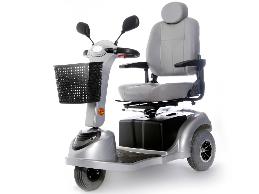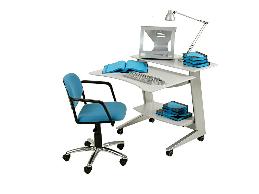On This Page
About Lupus
Lupus is a widespread and chronic autoimmune disease that, for unknown reasons, causes the immune system to attack the body's own tissue and organs, including the joints, kidneys, heart, lungs, brain, blood, or skin. The immune system normally protects the body against viruses, bacteria, and other foreign materials. In an autoimmune disease like lupus, the immune system loses its ability to tell the difference between foreign substances and its own cells and tissue. The immune system then makes antibodies directed against "self." There are several forms of lupus: cutaneous, systemic, drug-induced, neonatal, and overlap syndrome or mixed connective tissue disease.
Although lupus can affect any part of the body, the most common symptoms are achy joints, frequent fevers, arthritis, fatigue, skin rashes, kidney problems, chest pain with deep breathing, a butterfly-shaped rash across the cheek and nose, photosensitivity, impaired vision, Raynaud's phenomenon, and seizures. No single set of symptoms is uniformly specific to lupus and no laboratory test can prove lupus conclusively; symptoms may disappear for no apparent reason and remain in remission for weeks, months, or even years.
Lupus and the Americans with Disabilities Act
The ADA does not contain a definitive list of medical conditions that constitute disabilities. Instead, the ADA defines a person with a disability as someone who (1) has a physical or mental impairment that substantially limits one or more "major life activities," (2) has a record of such an impairment, or (3) is regarded as having such an impairment. For more information about how to determine whether a person has a disability under the ADA, see How to Determine Whether a Person Has a Disability under the Americans with Disabilities Act Amendments Act (ADAAA).
Accommodating Employees with Lupus
People with lupus may develop some of the limitations discussed below, but seldom develop all of them. Also, the degree of limitation will vary among individuals. Be aware that not all people with lupus will need accommodations to perform their jobs and many others may only need a few accommodations. The following is only a sample of the possibilities available. Numerous other accommodation solutions may exist.
Questions to Consider:
- What limitations is the employee experiencing?
- How do these limitations affect the employee and the employee’s job performance?
- What specific job tasks are problematic as a result of these limitations?
- What accommodations are available to reduce or eliminate these problems? Are all possible resources being used to determine possible accommodations?
- Once accommodations are in place, would it be useful to meet with the employee to evaluate the effectiveness of the accommodations and to determine whether additional accommodations are needed?
- Do supervisory personnel and employees need training?
Accommodation Ideas:
Situations and Solutions:
The following situations and solutions are real-life examples of accommodations that were made by JAN customers. Because accommodations are made on a case-by-case basis, these examples may not be effective for every workplace but give you an idea about the types of accommodations that are possible.









